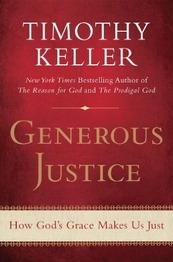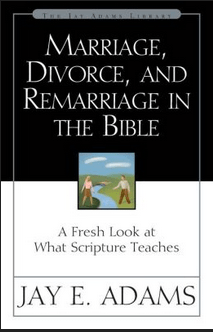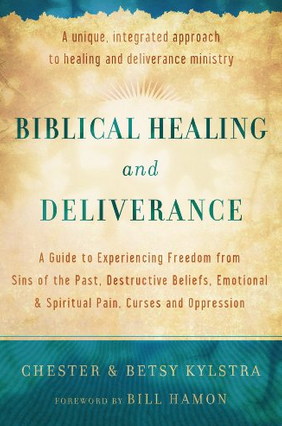 Generous Justice
Generous Justice
by Timothy Keller
I have read several of Keller’s books. This one is a must read for every Christian whose heart is nudging him or her toward ministry to the poor, the oppressed, and the marginalized. I will attempt summarize the book, but I encourage you to read it for yourself.
In Chapter One, citing Micah 6:8, Keller defines biblical justice as care for the vulnerable.
In premodern, agrarian societies, these four groups [widows, orphans, immigrants, and the poor] had no social power. They lived at a subsistence level and were only a few days away from starvation if there were any famine, invasion, or even minor social unrest. Today this quartet would be expanded to include the refugee, the migrant worker, the homeless, and many single parents and elderly people. The mishpat, or justness, of a society, according to the Bible, is evaluated by how it treats these groups. (pp.4-5)
Realize, then, how significant it is that the Biblical writers introduce God as “a father to the fatherless, a defender of widows” (Psalm 68:4-5). This is one of the main things he does in the world. He identifies with the powerless; he takes up their cause. (p.6)
Keller introduces another word for justice from the Old Testament, tzadeqah, which defines the righteous as those who are “right with God and therefore committed to putting right all other relationships in life.” (p10) The two words, mishpat and tzadeqah, are used together over three dozen times. “The English expression that best conveys the meaning is ‘social justice.’” (p.14) Keller then turns to the New Testament to point out that Jesus calls gifts to the poor “acts of righteousness.” (Matthew 6:1-2) Keller concludes that “not giving generously, then, is not stinginess, but unrighteousness, a violation of God’s law.” (p15)
Chapter Two delves more deeply into the the themes of justice in the Old Testament. God gave the Israelites numerous laws “that, if practiced, would have virtually eliminated any permanent underclass.” (p.27) There were laws of release from debt every seven years. Deuteronomy 15:7-8 commands Israelites to “be openhanded and freely lend him [the poor] whatever he needs,” in order to help them reach self-sufficiency. Gleaning laws commanded land owners to leave a certain portion of their crops in the fields so that the poor could work to provide food for themselves. Every third year the tithes were put in public storehouses for the poor and marginalized. (Deut. 14:29) Every fifty years on the year of Jubilee, all debts were forgiven, the land went back to its original owners, and slaves were freed.
Each person or family had at least a once-in-a-lifetime chance to start afresh, no matter how irresponsibly they had handled their finances or how far into debt they had fallen. (p.28)
Keller shows how Paul used Exodus 16:18 as a reference when he wrote 2 Corinthians Chapter Eight. He showed how the Israelites were commanded not to hoard manna, but to share it with those who may not have gathered enough. The idea being that “the money you earn is a gift from God. Therefore the money you make must be shared to build up community. So wealthier believers must share with poorer ones. (p.31) Before you jump to any conclusions, Keller is not a socialist, but shows how the Bible cannot be confined to any one political or economic philosophy.
Keller cites Craig Blomberg’s survey of the Mosaic laws of gleaning, releasing, tithing, and the Jubilee, where he concludes:
“the Biblical attitude toward wealth and possessions does not fit into any of the normal categories of democratic capitalism, or of traditional monarchial feudalism, or of state socialism.” (p.32)
Keller writes:
“One of the main reasons we cannot fit the Bible’s approach into a liberal or conservative economic model is the Scripture’s highly nuanced understanding of the causes of poverty.” (p.33)
Whereas liberals blame social forces beyond the control of the poor and conservatives blame the breakdown of the family, poor character, and bad personal practices, the Bible is more balanced. Oppression is certainly one main reason for poverty, and the rich are blamed when vast disparities exist between the rich and poor. (I will not cite the references here to be as concise as possible.)The author writes:
“the Mosaic legislation was designed to keep the ordinary disparities between the wealthy and the poor from becoming aggravated and extreme.” (p.33)
The Bible also lists natural disasters as a cause of poverty. Some people lack the ability to make wise decisions. Another cause is personal moral failure. “Poverty, therefore, is seen in the Bible as a very complex phenomenon.” (p.34)
In the New Testament, Keller quotes Luke 14:12-13 to show us
“that it is in some respects our duty to give a preference to the poor.” (p.46)
In contrast to the patronage system in existence in Jesus’ day, what Jesus prescribed
“would have looked like economic and social suicide.” (p.47)
Instead of doing favors for the rich and influential, our Lord advised serving those who can do nothing for us.
“Like Isaiah, Jesus taught that a lack of concern for the poor is not a minor lapse, but reveals that something is seriously wrong with one’s spiritual compass, the heart.” (p.51)
The parable of the sheep and goats teaches that our heart and service towards the poor and marginalized reflect our heart and service to Jesus.
Perhaps the best chapter in the book is the fifth, entitled “Why Should We Do Justice?” When we delve down into what really motivates our behavior and values, we discover hidden treasure. It is obvious that mere reason and guilt trips will not change people’s hearts to be more involved with helping the helpless. Keller comes at the “why” from two angles. The first is what he calls “honoring the image,” which is based on creation.
“The image of God carries with it the right to not be mistreated or harmed.” (p.84)
Or to put it another way,
“Because we treasure the owner [God], we honor his house [people].” (p.85)
Using this line of reasoning, we must acknowledge that everything we have came from God and ultimately belongs to God. We are stewards or caretakers of another’s property. Applying the Old Testament principles of mishpat and tzadeqah, we can say, “the righteous [tzaddiq]…are willing to disadvantage themselves to advantage the community; the wicked are willing to disadvantage the community to advantage themselves.” (p.90)
Does this not echo the words of Paul:
You know the generous grace of our Lord Jesus Christ. Though he was rich, yet for your sakes he became poor, so that by his poverty he could make you rich. 2 Corinthians 8:9 (NLT)
With reference to the gleaning laws, Keller writes:
In God’s view, however, while the poor did not have a right to the ownership of the farmer’s land, they had a right to some of its produce. If the owner did not limit his profits and provide the poor with an opportunity to work for their own benefit in the field, he did not simply deprive the poor of charity, but of justice, of their right. Why? A lack of generosity refuses to acknowledge that your assets are not really yours, but God’s. (p.91)
The second part of the “why” we should do justice is found in our response to grace. The idea here is that none of us deserve God’s grace. Any argument against serving the poor because they don’t deserve our help falls apart in light of this truth. James wrote that to look at a brother or sister without resources and do nothing about it reveals a lifeless kind of faith. (James 2:15-16)
The doctrine of justification is necessary because the demands of the law are so high that none of us can attain to it. God’s commands regarding loving the poor and helpless are so high that we must rely on God’s grace to enable us to fulfill them.“People who come to grasp the gospel of grace and become spiritually poor find their hearts gravitating toward the materially poor. To the degree that the gospel shapes your self-image, you will identify with those in need.” (p.102)
Keller concludes:
“I believe, however, when justice for the poor is connected not to guilt but to grace and to the gospel, this ‘pushes the button’ down deep in believers’ souls, and they begin to wake up.” (p.107)
The last two chapters deal with practical aspects of doing justice individually, as a church, and in partnership with others in the community. The last chapter shows how Jesus identified with the poor and oppressed when he hung upon the cross, penniless and without justice. His trial and execution were illegal. God came to earth as a poor carpenter and died as a criminal. He is the advocate of the poor, oppressed, and marginalized people of the earth, and has called his church to join him in manifesting God’s love to those who desperately need it.
I hope you will take the time to purchase and read this book. It will impact your life for good.



